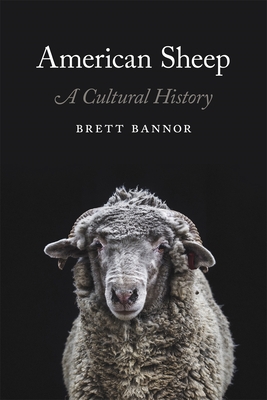American Sheep: A Cultural History

American Sheep: A Cultural History
Why did Thomas Jefferson write that he would be happy if all dogs went extinct? What economic opportunity did attorney John Lord Hayes envision for the newly emancipated during Reconstruction? What American workers were mocked by Theodore Roosevelt as "morose, melancholy men"? What problems with revenue collection did Congressman James Beauchamp Clark mention when proposing an income tax? Why did Harley O. Gable of Armour & Company recommend that his meat-packing business manufacture violin strings? Why was Senator Lyndon Johnson angry at the Army and Navy Munitions Board at the start of the Korean War? The answers to all these questions involve sheep. From the colonial era through the mid-twentieth century, America's flocks played a key role in the nation's development. Furthermore, much consternation centered around the sheep the United States lacked, so that dependency on forei
PRP: 185.69 Lei
Acesta este Prețul Recomandat de Producător. Prețul de vânzare al produsului este afișat mai jos.
148.55Lei
148.55Lei
185.69 LeiLivrare in 2-4 saptamani
Descrierea produsului
Why did Thomas Jefferson write that he would be happy if all dogs went extinct? What economic opportunity did attorney John Lord Hayes envision for the newly emancipated during Reconstruction? What American workers were mocked by Theodore Roosevelt as "morose, melancholy men"? What problems with revenue collection did Congressman James Beauchamp Clark mention when proposing an income tax? Why did Harley O. Gable of Armour & Company recommend that his meat-packing business manufacture violin strings? Why was Senator Lyndon Johnson angry at the Army and Navy Munitions Board at the start of the Korean War? The answers to all these questions involve sheep. From the colonial era through the mid-twentieth century, America's flocks played a key role in the nation's development. Furthermore, much consternation centered around the sheep the United States lacked, so that dependency on forei
Detaliile produsului









